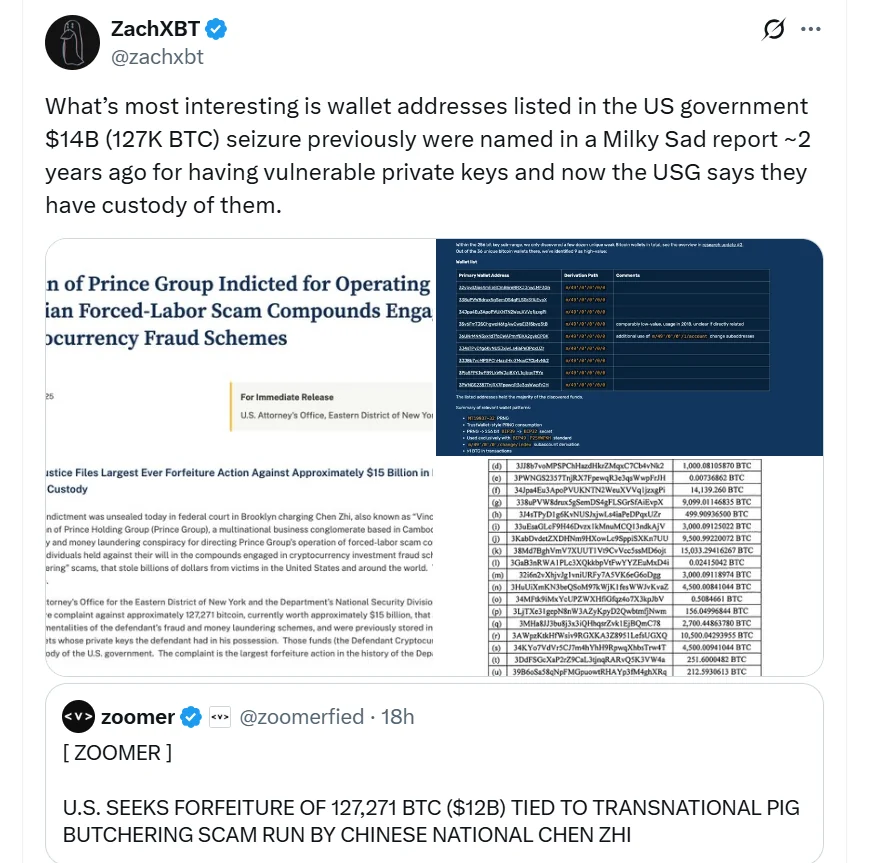According to US authorities, more than 127,000 bitcoins—worth nearly $15 billion—have been seized, along with a wave of asset freezes and international sanctions. The operation has been described as an “earthquake” in the crypto world, exposing a vast web of money laundering and digital fraud stretching across continents.
A Sophisticated Crypto Investment Scam Disguised as Love
Federal prosecutors allege that Chen Zhi ran a massive “pig butchering” network—an elaborate scam blending fake relationships with fraudulent crypto investments. Victims were manipulated into transferring their savings to digital wallets secretly controlled by the crime syndicate.
Court filings reveal that thousands of workers were trafficked and forced into labor inside compounds in Cambodia, managing countless fake social media accounts used to lure investors worldwide. Chen allegedly authorized violent crackdowns to control these workers. Some facilities were reportedly linked to Prince Group’s casino operations, serving as hubs for coordinated scam campaigns.
Chen Zhi, also known as Vincent, remains at large, facing up to 40 years in prison if convicted.
A Sanctions Offensive Like Never Before

Alongside the criminal charges, the US Treasury Department has designated Prince Holding Group as a “transnational criminal organization,” effectively barring all US businesses from dealing with the conglomerate. The UK has also frozen over $172 million in assets linked to Chen, including a $16 million London property.
US Treasury Secretary Scott Bessent stated:
“Cross-border crypto scams have cost Americans billions—and shattered lives within minutes.”
Investigators say Chen’s network used shell companies, online gambling platforms, and crypto mining operations to conceal the origins of illicit funds, which were later funneled into luxury yachts, private jets, fine art, and high-end real estate spanning over 30 countries.
The Dark Underbelly of Southeast Asia’s Digital Economy
The Chen Zhi case serves as a stark warning about Southeast Asia’s growing role in global cybercrime. The United Nations estimates that over 100,000 people in Cambodia are being coerced into online scam operations, with similar networks active in Myanmar, Laos, and the Philippines.
Jacob Daniel Sims, a transnational crime expert at Harvard University, remarked:
“This marks a turning point—one of the rare moments when the world pushes back against elite-driven digital crime economies.”
Despite the sweeping charges, Prince Holding Group continues to portray itself as one of Cambodia’s largest conglomerates, with over 100 subsidiaries spanning real estate, finance, and tourism.
According to a University of Texas study, global losses from “pig butchering” scams have exceeded $75 billion over the past four years. The indictment against Chen Zhi represents a historic milestone in the global fight against crypto-enabled crime—a world where technology, greed, and deception intertwine in the darkest corners of the digital age.






